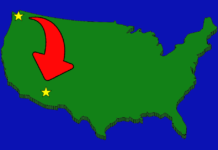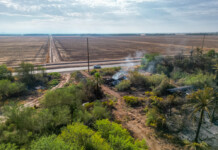
One Haitian woman was kept from showing herself in public because the growth on her forehead was considered a social taboo. A Maricopa mother and daughter on a mission took care of the tumor.
“Things we can control so easily here in health care, there’s no controlling it in Haiti,” Becky Bell said. “Even the smallest things they can’t fix.”
The outcast was in her late 40s and visited a clinic during the Bells’ service trip in Haiti. A benign growth on her forehead had been getting bigger and bigger.
In Haiti, those with physical deformities are ostracized from society because they are considered cursed.
“Because we had the proper tools and anesthesia we were able to surgically remove the tumor,” Becky said. “She was able to go to the market for her family for the first time in years and years and years.”
Becky and her daughter Emily travel to Pillatre, Haiti to provide health-care expertise and medication at the only building in town, which acts as clinic and school. They are part of a medical mission with Chandler Christian Church.
It is the only place in the village that can guarantee a meal and vitamins to its students as well as a trained medical staff to the general population.
A 7.0 magnitude earthquake struck the country in January 2010 and rebuilding efforts continue.
The Bell women are a part of that effort. They see more than 500 patients during their 10-day stays.
Becky has been a neonatal nurse at Maricopa County Hospital for more than 30 years and Emily attends Central Arizona College.
They’re preparing for their second mission trip to Haiti in January.
“I’ve made some tough decisions in my life, but I’ve learned that God can do whatever and whenever,” Emily Bell, a 22-year-old pharmaceutical student, said. “It’s life-changing what we do.”
The two said Haitians are built to withstand disaster but need help recovering. The government has little infrastructure and public health is nonexistent. The Pillatre water supply is ridden with bacteria and infection, Becky said.
“We as a country could learn so much from them about contentment,” Becky said. “If a hurricane strikes, all the homes are destroyed and no one dies that is considered a good day.”
Deworming medications are in the highest demand. Becky equated the popularity for them to narcotics in the United States.
“They have a black market for it. The water is just so bad,” she said.
The mother and daughter encounter a gamut of other ailments from cholera to cancer.
“Making a difference in someone’s life, that’s the name of the game,” said Dallas Paulsen, Becky’s father.


![Rizz party organizers say city ‘lying’ One of several flyers for a "TikTok rizz party" is taped to a door in the Maricopa Business Center along Honeycutt Road on April 23, 2024. [Monica D. Spencer]](https://www.inmaricopa.com/wp-content/uploads/2024/04/spencer-042324-tiktok-rizz-party-flyer-web-218x150.jpg)
![Province writer opens the athlete’s mind in new book Tom Schuman, a Province resident, poses with a copy of his new book, "My Wide World of Sports," outside his home on May 2, 2024. [Monica D. Spencer]](https://www.inmaricopa.com/wp-content/uploads/2024/05/spencer-050224-tom-schuman-sports-book-web-01-218x150.jpg)







![Maricopa restaurateur makes Food Network connection [Namkeen Dhaba]](https://www.inmaricopa.com/wp-content/uploads/2024/04/439456716_377105198650519_7536248579664805896_n-218x150.jpg)
![Merging lanes incite more 347 anger A merging lane sign sits on the side of State Route 347 northbound lanes during evening traffic on April 30, 2024. [Monica D. Spencer]](https://www.inmaricopa.com/wp-content/uploads/2024/04/spencer-043024-adot-merging-lanes-347-web-218x150.jpg)



